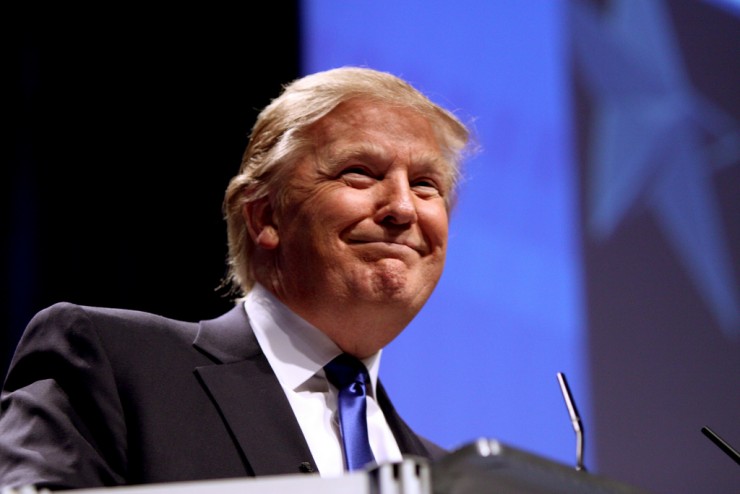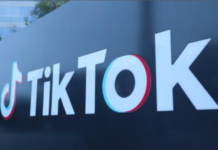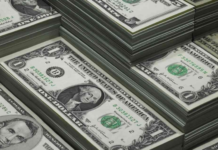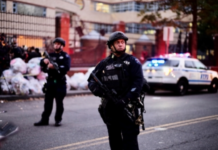By Greg St. Martin
News at Northeastern
BOSTON–After a contentious and polarizing presidential race, Republican Donald J. Trump defied the odds and the polls and surged to victory over Democrat Hillary Clinton in the 2016 election on Tuesday. It’s an outcome William Crotty, professor emeritus of political science at Northeastern, called “one of the biggest political upsets in history.”
“He has no experience, and he operates on impulse and one-man rule,” said Crotty, an expert on American political parties and elections. “Yet his strength was that he communicated that he was against the political establishment and he was the agent of change, and he did it in a very angry way. Clearly it took hold.”

Election Day drama
Election Day transformed into a wild election night, as throughout the evening momentum swung dramatically in Trump’s favor as he collected key battleground states including Florida and Ohio. His path to victory widened, and news outlets began calling the election for Trump shortly after 2:30 a.m. He began his victory speech by congratulating Clinton on a hard fought campaign and then turning his attention to bringing the country together—a country deeply divided in this election.
“Now it’s time for America to bind the wounds of division,” Trump said, pledging to be “president for all Americans.”
This was an election Clinton should’ve won, Crotty said. On one hand her opponent, Trump, “is ignorant of policy issues” and led a campaign filled with insults, he said. And despite the private email server scandal, Crotty said Clinton had detailed policy proposals and was a committed, tough candidate. But, he noted, “the idea of change and reacting to what you see in the electorate is not one of her strengths.”
‘A mystifying failure of polling’
Still, the election’s outcome was a “significant surprise” given polling leading up to Election Day, said Nick Beauchamp, assistant professor of political science. “Most predictive models gave Clinton a very high probability to win, and of course all were about equally wrong in that,” he said.
“On the one hand, this is a mystifying failure of polling that will be occupying political scientists for some time to come,” said Beauchamp, a core faculty member of the NULab for Texts, Maps, and Networks, Northeastern’s center for digital humanities and computational social science. “On the other hand, it will sound familiar to many. In addition to the infamous Brexit polling failure, the 2015 U.K. general election polls also erred in underestimating the true conservative vote, and in the 2014 U.S. midterm elections, many of the Senate polls mistakenly underestimated the Republican vote by four or more points.”
Beauchamp said much more still needs to be understood, though he noted theories such as problems with polling technology and voters’ willingness to respond to polls. “Whatever the cause, though, clearly we need to fix this major problem with polling as soon as possible to avoid these sorts of surprises in the future,” he said.
Crotty offered his own analysis on the turnaround from poll projections to election night results: the news that broke Friday night that the FBI would review new emails related to the investigation into Clinton’s use of a private email server. Crotty said Clinton had been hammered on this throughout the race, and this late development “worked nicely for the Trump campaign.”
Congressional races
Republicans also retained control of the House of Representatives and Senate on election night. Beauchamp said this outcome along with Trump’s presidency mean that Republicans should now have four years of fairly unobstructed policy-making.
“So those who have been wishing for less gridlock in Washington may get their wish, for some time to come,” he said.













